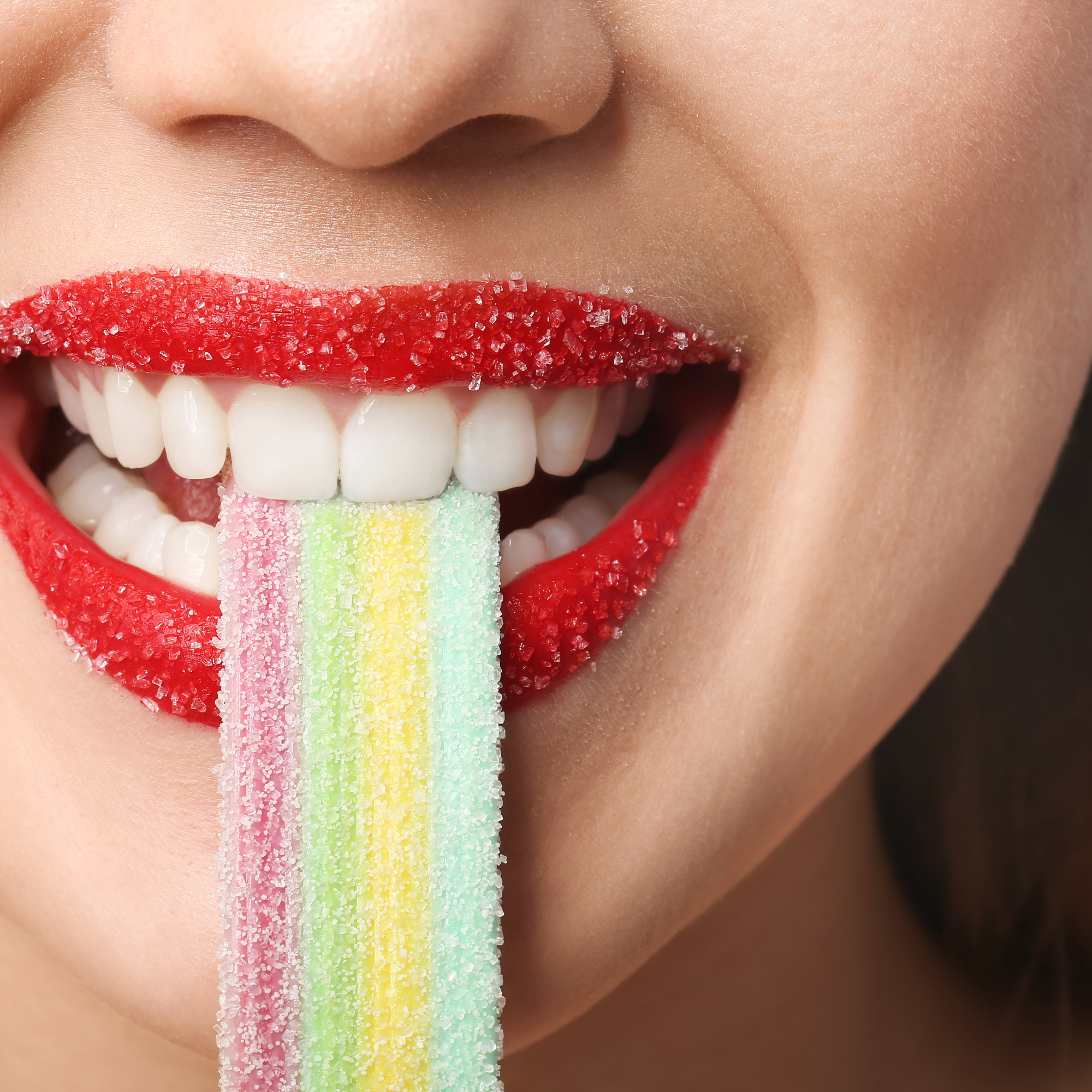
Does Monk Fruit Taste Like Sugar? Unveiling the Sweet Truth
Monk fruit has emerged as a popular natural sweetener, celebrated for its intense sweetness and potential health benefits. However, many people wonder if monk fruit can truly replicate the taste of sugar. In this blog, we will explore the unique origins of monk fruit and explain how, despite being a different species, monk fruit can provide a comparable sweetness to sugar when used in various culinary applications, without the aftertaste or negative effects associated with sugar consumption.
Origins: Monk Fruit vs. Sugar Cane To understand the taste differences between monk fruit and sugar, it's important to recognize their distinct origins. Sugar cane, a tall perennial grass, is the primary source of traditional table sugar. On the other hand, monk fruit comes from a small fruit known as luo han guo (Siraitia grosvenorii), native to Southeast Asia.
Distinct Species, Comparable Sweetness While monk fruit and sugar cane belong to different species, the sweetness they provide can be remarkably similar. Monk fruit extract, primarily derived from the fruit's natural compounds called mogrosides, delivers an intense sweetness that rivals that of sugar.
Taste in Culinary Applications: When monk fruit extract is used as a sugar substitute in various recipes or added to beverages like coffee, tea, smoothies, or salad dressings, its taste is virtually indistinguishable from sugar. This means that when you use monk fruit as a replacement, your food and drinks can achieve the desired sweetness without sacrificing taste.
The Advantage of Monk Fruit: Apart from the comparable taste to sugar, monk fruit offers several advantages:
-
No Aftertaste: Unlike some artificial sweeteners or alternative sweeteners, monk fruit does not leave behind a lingering aftertaste. This ensures that your culinary creations maintain a clean and pleasant flavor profile.
-
No Negative Effects of Sugar: Using monk fruit as a sugar substitute allows you to enjoy sweetness without the negative effects associated with sugar consumption. Monk fruit is calorie-free, does not raise blood sugar levels or contribute to tooth decay, making it a healthier choice for individuals looking to reduce their sugar intake.
-
Versatility: Monk fruit can be used in a wide range of culinary applications, including baking, cooking, and beverages. It can replace sugar in recipes on a one-to-one basis, allowing for seamless integration into your favorite dishes without compromising taste or texture.
While monk fruit and sugar come from different sources and belong to distinct species, monk fruit extract provides a comparable sweetness when used as a sugar substitute. Despite its unique origin from the luo han guo fruit, monk fruit can replicate the taste of sugar when baked, cooked, or incorporated into various recipes, as well as when added to coffee, tea, smoothies, or salad dressings. With no aftertaste and without the negative effects associated with sugar, monk fruit offers a natural and healthier alternative for those seeking to reduce their sugar consumption.
Embrace the sweet potential of monk fruit and enjoy the delightful taste it brings to your favorite culinary creations. Whether you are looking to manage your sugar intake, follow a specific dietary plan, or simply explore new flavor profiles, monk fruit can be a valuable addition to your kitchen pantry, offering a guilt-free way to satisfy your sweet tooth without compromising on taste or health.
Calorie Calculator

Build Your MonkVee® Box
Ditch the sugar & lab made sweeteners for good!
Glycemic Index Calculator
Click product for details and to upgrade to Subscribe & Save
Try MonkVee®
Mac: Command + F to find your question
Commonly Asked Questions
Why use Monk Fruit Sweetener?
MonkVee® Monk Fruit Sweeteners are 100% natural and zero calories. Unlike sugar which is known to be the leading cause of dozens of awful chronic illnesses such as certain cancers, diabetes, and other killers. MonkVee® Monk Fruit (and Stevia extract) are the healthiest known sweeteners available on the market today. Unlike lab-made artificial sweeteners, MonkVee® is your #1 choice for pure, natural, delicious sweetness. No More sugar spikes and sugar crashes, jitters, diseases, tooth decay and cavities... The list goes on. Try MonkVee® and enter the sweet life!
Will monk fruit sweetener activate yeast
Monk fruit doesn't activate yeast like sugar does, however, by using MonkVee® Monk Fruit, you can reduce the sugar in your recipe overall and have a much healthier outcome! And it will taste just as good! See our full article about baking with monk fruit here.
What is monk fruit?
Monk fruit, also known as luo han guo, is a small green melon native to Southeast Asia. It's valued for its sweetness and health benefits.
How is monk fruit sweetener made?
Monk fruit sweetener is made by extracting the natural sugars from the monk fruit, resulting in a concentrated sweetener that is much sweeter than sugar.
Is monk fruit sweetener a good sugar alternative for baking?
Yes, monk fruit sweetener can be used as a sugar alternative in baking. It provides sweetness without the calories or blood sugar spikes associated with regular sugar.
Does monk fruit sweetener have any calories?
Monk fruit sweetener is calorie-free, making it an excellent option for those watching their calorie intake.
Can monk fruit sweetener be used by people with diabetes?
Yes, monk fruit sweetener is a suitable option for people with diabetes because it does not affect blood sugar levels.
Is monk fruit sweetener safe for weight loss diets?
Monk fruit sweetener can be a helpful tool for those on weight loss diets as it provides sweetness without the calories of sugar.
Does monk fruit sweetener have an aftertaste?
Monk fruit sweetener typically does not have an aftertaste, especially when compared to other artificial sweeteners.
Can monk fruit sweetener help with acne?
While there's no direct evidence linking monk fruit sweetener to acne, reducing sugar intake, including monk fruit sweetener, may contribute to clearer skin for some individuals.
Does monk fruit sweetener affect sleep quality?
Monk fruit sweetener does not directly affect sleep quality. However, consuming it in excess before bedtime may lead to digestive discomfort, which could impact sleep.
Are there any known side effects of consuming monk fruit sweetener?
Monk fruit sweetener is generally recognized as safe (GRAS) according to the FDA.
Can monk fruit sweetener be used in hot beverages like coffee or tea?
Yes, monk fruit sweetener can be added to hot beverages like coffee or tea to sweeten them without adding calories.
Is monk fruit sweetener suitable for vegan diets?
Yes, monk fruit sweetener is vegan-friendly as it is derived from the fruit and does not contain any animal products.
How does monk fruit sweetener compare to other natural sweeteners like stevia?
Monk fruit sweetener and stevia are both natural sweeteners with zero calories, but monk fruit is often considered to have a cleaner, more sugar-like taste.
Can monk fruit sweetener be used in cold beverages?
Yes, monk fruit sweetener can be used to sweeten cold beverages like iced tea or lemonade without any issues.
Does monk fruit sweetener contain any artificial ingredients?
No, monk fruit sweetener is made from the natural sugars found in the monk fruit and does not contain any artificial ingredients.
Can monk fruit sweetener be used in recipes that require caramelization?
Monk fruit sweetener can be used in recipes that require caramelization, but it may not caramelize in the same way that sugar does.
Can monk fruit sweetener be used in homemade jams and preserves?
Yes, monk fruit sweetener can be used to sweeten homemade jams and preserves instead of sugar. It will provide sweetness without adding extra calories.
Does monk fruit sweetener have a glycemic index?
Monk fruit sweetener has a glycemic index of zero, meaning it does not raise blood sugar levels.
Can monk fruit sweetener be used in raw desserts?
Yes, monk fruit sweetener can be used in raw desserts to add sweetness without the need for cooking or baking.
Is monk fruit sweetener suitable for people with gluten intolerance?
Yes, monk fruit sweetener is gluten-free and can be safely consumed by people with gluten intolerance or celiac disease.
Can monk fruit sweetener be used in homemade salad dressings?
Yes, monk fruit sweetener can be used to sweeten homemade salad
Is monk fruit sweetener suitable for people following a ketogenic diet?
Yes, monk fruit sweetener is suitable for those on a ketogenic diet as it does not contain any carbohydrates or sugars that could affect ketosis.
Can monk fruit sweetener be used in beverages other than tea and coffee?
Absolutely! Monk fruit sweetener can be used in various beverages like smoothies, cocktails, and flavored water to add sweetness without the extra calories.
Does monk fruit sweetener affect blood sugar levels?
No, monk fruit sweetener does not affect blood sugar levels as it has a glycemic index of zero. It's a suitable option for those monitoring their blood sugar.
Is monk fruit sweetener safe for pregnant women?
Monk fruit sweetener is generally considered safe for pregnant women, but it's always best to consult with a healthcare professional for personalized advice.
Can monk fruit sweetener be used in homemade granola bars?
Yes, monk fruit sweetener can be used in homemade granola bars to provide sweetness without the added sugar. It's a healthier option for snacks.






















